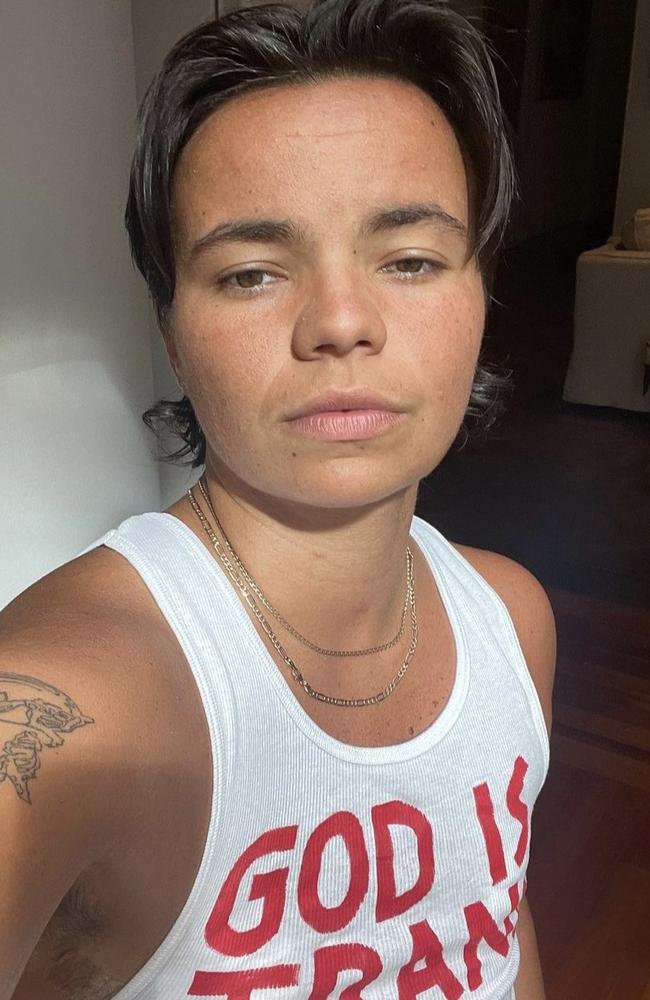Australian horror film banned in Kuwait over trans character
A breakout actor whose film was banned overseas has slammed the decision as leaving them feeling “targeted and dehumanised”.
Actor Zoe Terakes has spoken out after their breakout film was banned overseas because of the portrayal of a trans character.
Australian-made horror film Talk To Me was released earlier this month to critical acclaim but was denied release in Kuwait.
The Gulf country reportedly refused to approve the release of the film because of Terakes identifying as a non-binary trans person.
A rising star in the Australian film industry, Terakes said the decision left them feeling “targeted and dehumanised”.
“I’ve been wondering how to respond to this. Whether it deserves the dignity of a response,” Terakes wrote on Instagram.
“This isn’t the first film Kuwait has banned. If there are queer or trans themes in your film, it’s probably not going to make it to the Gulf.
“But, our film doesn’t have queer themes, (it) doesn’t ever mention my transness or queerness.
“I am a trans actor who happened to get the role. I’m not a theme. I’m a person.”

Terakes said the banning, due to their identity alone, was “a first” for the Middle Eastern nation and set an alarming precedent.
They expressed concern about what the move would mean for trans and queer people living in Kuwait.
“This is targeted and dehumanising and means to harm us,” Terakes said.
“Representation is hope. Representation is the light at the end of the tunnel.
“(It is) a reason to keep going, something to hold onto in the dark. A voice that whispers things can be better.
“Eliminating trans people on screens will not eliminate trans people, as much as the Kuwait government wishes it would.
“But, it will eliminate a lot of hope. And, hope is a large part of how we live as a marginalised people.”
The film, distributed by US-based A24, released earlier this month to widespread critical acclaim.
Filmed in Adelaide, it centres on a group of teenagers who use a supernatural item to talk to the dead.

The banning is only the latest in a string of high-profile films to be refused release in the Middle East, where LGBTQ rights are often curtailed.
Disney Pixar’s movie Lightyear was refused release in 14 countries, including the UAE and Saudi Arabia, over a scene of two women kissing.
Last year, Marvel’s blockbuster Doctor Strange sequel was also barred from being released in Egypt and Saudi Arabia due to LGBTQ themes.
Terakes said the banning was a reminder that people in the tarns and queer communities had historically had to rely on themselves.
“Our survival is so dependent on our ability to (...) love each other, to lean on each other, to see each other,” they said.
“My heart breaks for the trans people and queer people of Kuwait who have so few places to look.”



